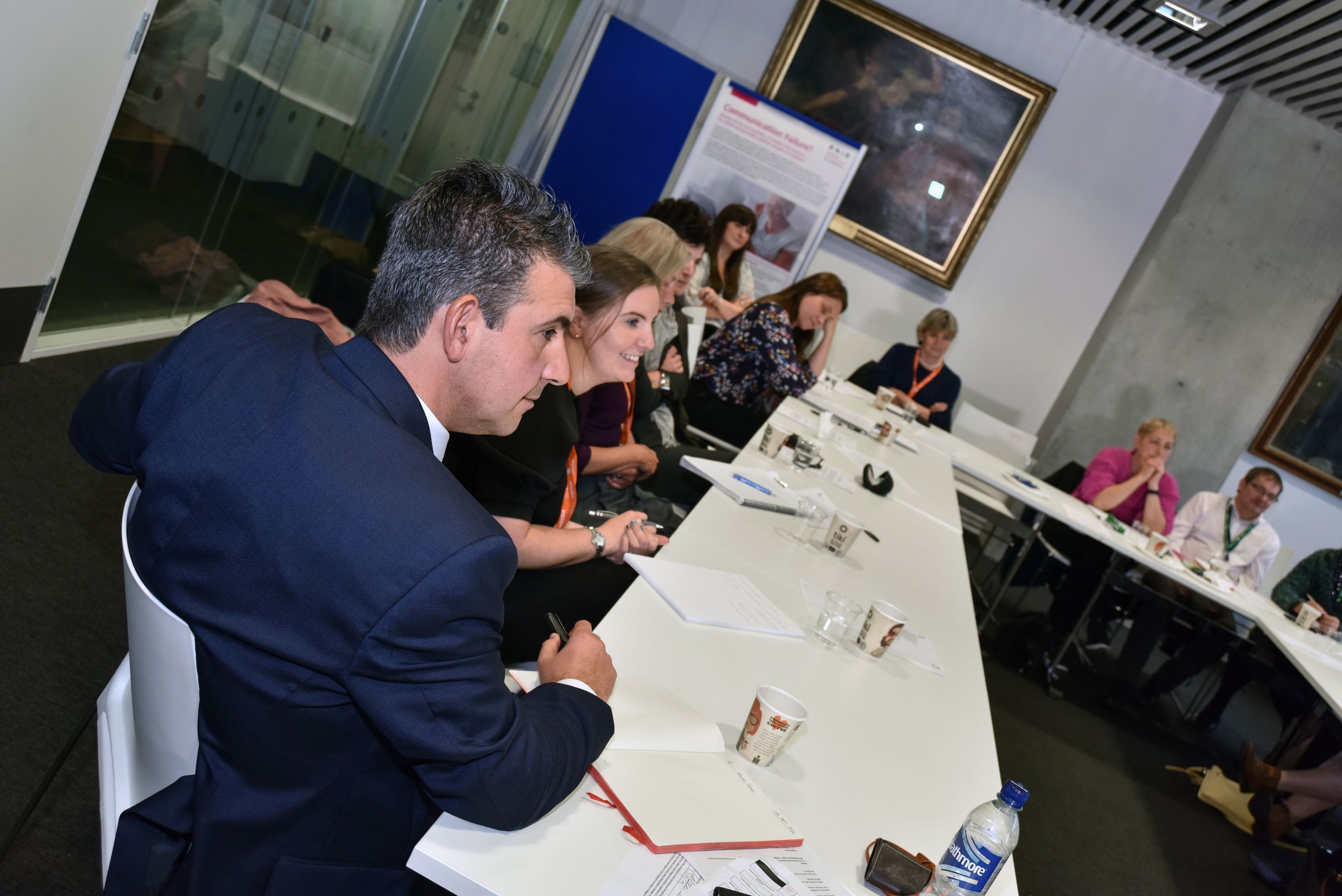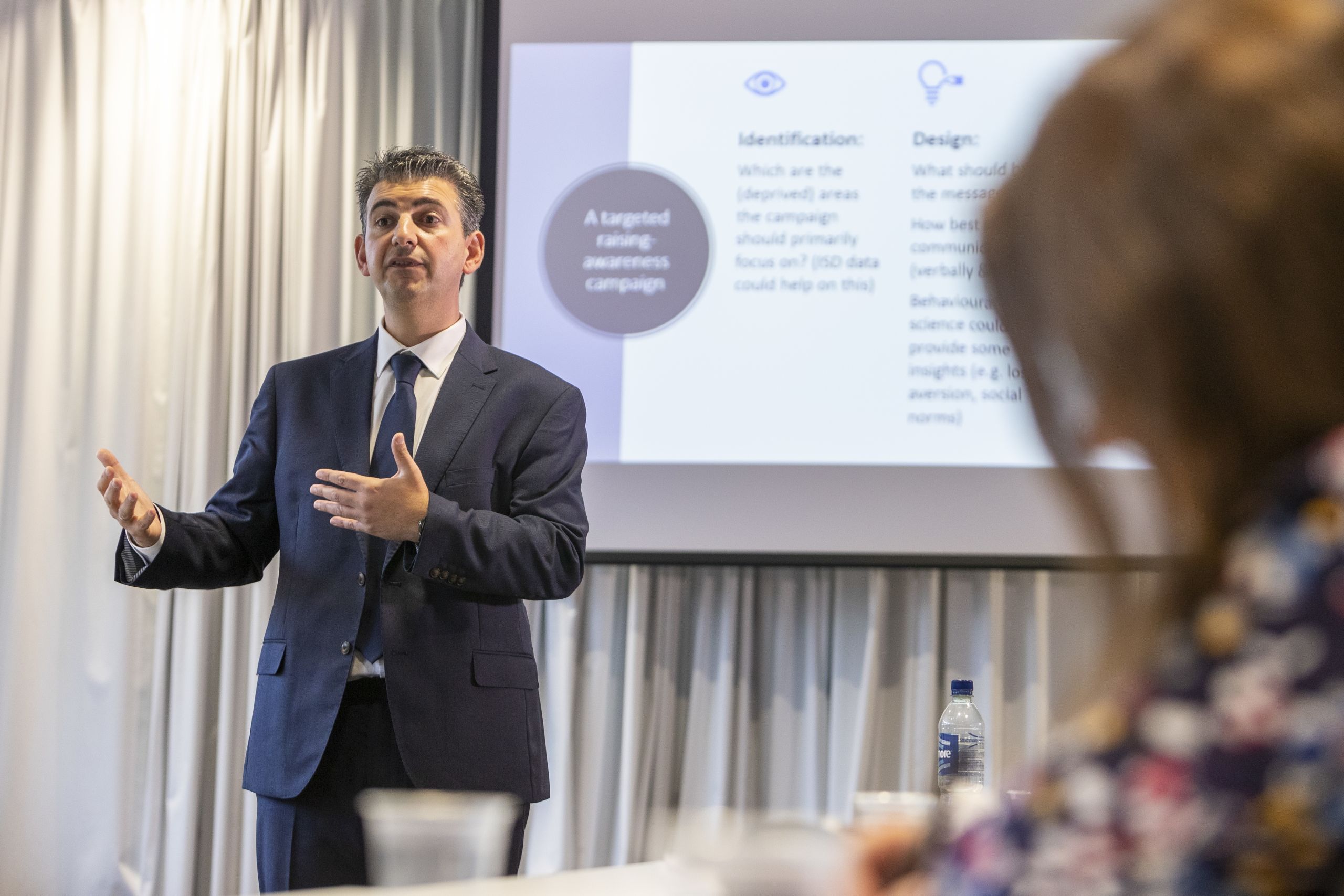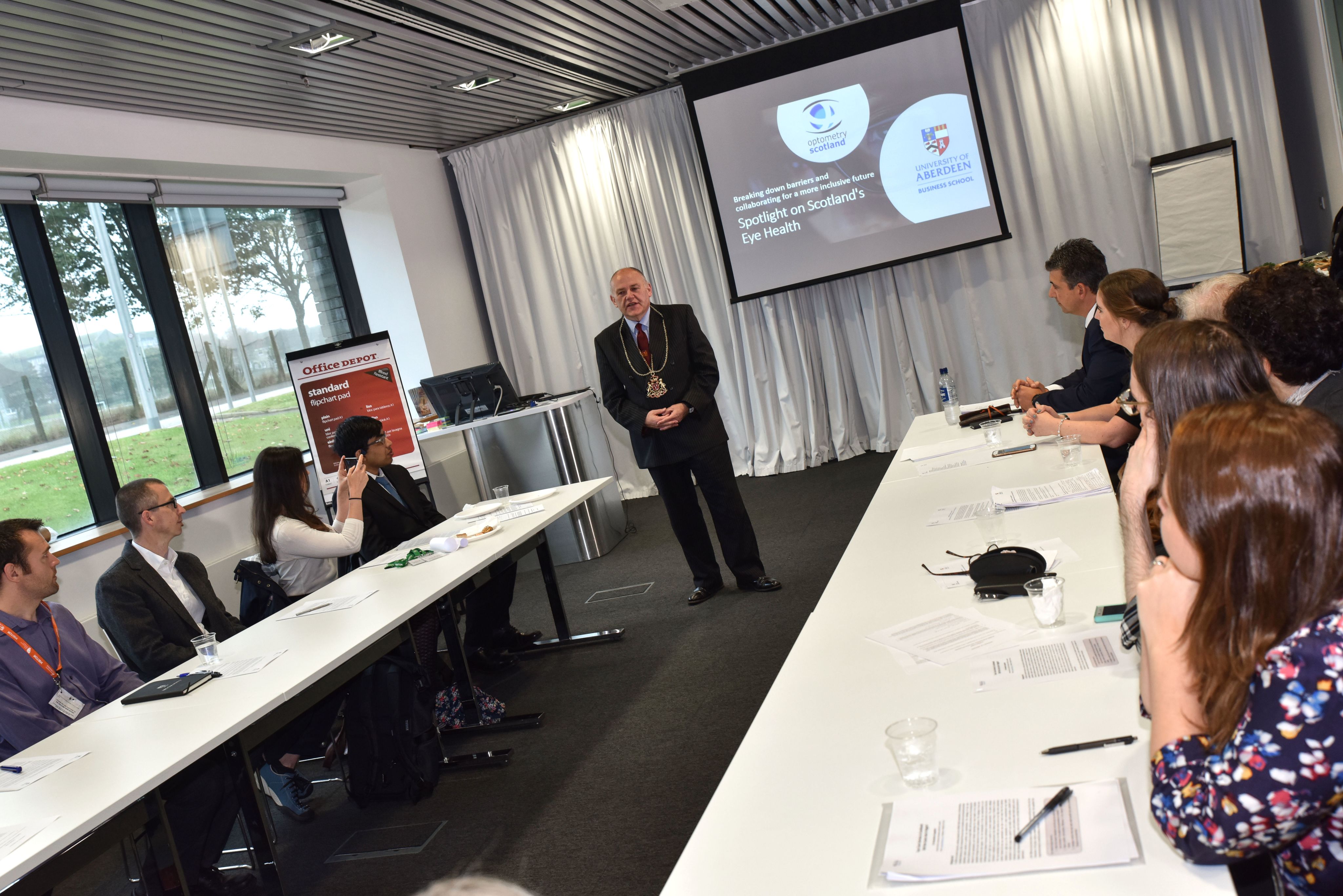Improving eye care with policy reform
Our researchers examined the success of Scotland's free eye care policy to raise awareness of social inequalities.

Regular eye examinations are important for checking our sight and eye health, but they can also play a key role in detecting underlying conditions such as diabetes, high blood pressure and thyroid disease. For many years, those living in Scotland had to pay for eye exams at a private optometrist, but this often meant that people would avoid having their eyes tested.
In 2004, the Scottish Executive announced a review of eye care services as part of its commitment to eliminate avoidable blindness by 2020. After identifying that free services could potentially encourage more people to benefit from regular eye exams, the Government introduced free eye care at any high street optician in 2006.
Subsidised by the NHS, it was hoped that free eye tests would result in reduced hospital waiting times, lower costs and quicker treatment for patients. The policy aimed to address wider health issues, and since then the provision of eye care in Scotland has transformed. But how can we know if the introduction of free eye exams had the desired effect?
Data-driven research
Led by Professor Alexandros Zangelidis, a team of researchers from the University of Aberdeen initiated a project to examine the success of the free eye care policy and to identify if more people chose to have their eyes tested.


Funded by the Scottish Government’s Chief Scientist Office, the year-long project aimed to establish if the objectives of the policy had been met and if free eye examinations led to wider health care benefits across all socioeconomic groups.
“By using data from the British Household Panel Survey, we could determine if more people had eye tests as a result of the new policy, and if certain socioeconomic groups responded more positively than others.
"We also examined if the introduction of a more thorough eye examination by high street optometrists led to the detection of other health problems such as hypertension.”

Addressing social inequality
The team’s research reported that prior to the policy there were already socioeconomic inequalities in the demand of eye care in Scotland. The introduction of free, NHS-funded, eye examinations did not manage to narrow this gap.
Professor Zangelidis said: “Ultimately, our research showed that there was an increase in the uptake of eye examinations, but this was primarily evident in the upper part of the income distribution.
"Individuals in this group were already more likely to undergo an eye examination and so our research concluded that the policy had inadvertently increased socioeconomic inequalities in the demand for eye care in Scotland."


“The eye care reform also changed the nature of an eye exam from a sight test to a more comprehensive eye examination. Our research suggests that there are wider health benefits that can be achieved through an eye examination. Indeed, since 2006 we saw an increase in the detection of high blood pressure. As in the case of eye examinations though, it was people from the wealthier households in Scotland who reported an increase in the incidence of high blood pressure.
“Our findings recommended that a more targeted awareness-raising campaign was required to reach all parts of society, focusing primarily on specific patient groups among whom take-up of free eye examinations is lower, including those living in more disadvantaged communities.”
Industry engagement
In September 2019, Professor Zangelidis hosted a workshop and round table event entitled “Spotlight on Scotland's Eye Health – breaking down barriers and collaborating for a more inclusive future”.
Held during National Eye Health Week, the event led to the establishment of Scottish Eyecare for Everyone (SEE) – a nationwide network and forum for the advancement of eye health in Scotland.
Professor Zangelidis was also invited by Optometry Scotland to participate in an Experts Working Group. In February 2021, the group produced a policy report on Primary Eyecare Services in Scotland which was submitted to the Scottish Government and formed the basis for negotiations on the future of universal NHS-funded eyecare.
These negotiations were successful and a 3% increase in eye examination fees for optometrists was agreed. This was the first major review of the Scottish General Ophthalmic Services Contract (GOS) since its introduction in April 2006.

Impact
- Research raised awareness of socioeconomic inequalities that developed from introduction of the new policy
- Findings shaped the focus of the Scottish Government’s awareness-raising campaigns and informed key stakeholders such as the Royal National Institute of Blind People (RNIB Scotland) and Optometry Scotland
- Scottish Minister for Public Health, Sport and Wellbeing, Joe Fitzpatrick, stated his commitment to a targeted public campaign
- RNIB Scotland ran an awareness campaign during the National Eye Health Week (September 2019) using a series of special coasters featuring iconic Scottish landmarks as seen through different sight loss conditions
- Research influenced the methodology and practices of Scotland’s Information Services Division in the way eye care data is reported, which helped to identify deprived areas that are potentially harder to reach, and inform policy
- Industry engagement led to a new nationwide eye health network and a major review of the Scottish General Ophthalmic Services Contract


